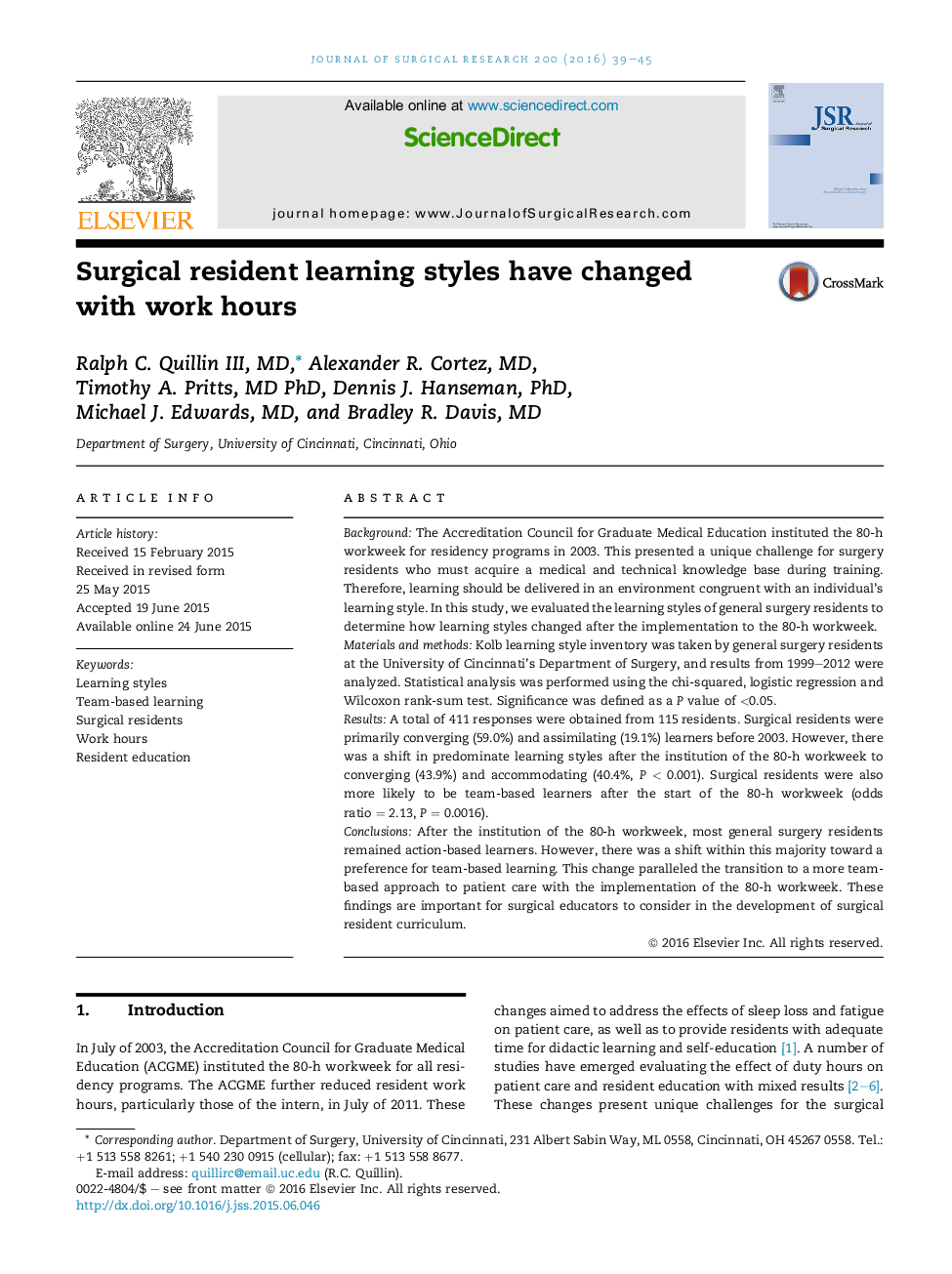| Article ID | Journal | Published Year | Pages | File Type |
|---|---|---|---|---|
| 4299489 | Journal of Surgical Research | 2016 | 7 Pages |
BackgroundThe Accreditation Council for Graduate Medical Education instituted the 80-h workweek for residency programs in 2003. This presented a unique challenge for surgery residents who must acquire a medical and technical knowledge base during training. Therefore, learning should be delivered in an environment congruent with an individual's learning style. In this study, we evaluated the learning styles of general surgery residents to determine how learning styles changed after the implementation to the 80-h workweek.Materials and methodsKolb learning style inventory was taken by general surgery residents at the University of Cincinnati's Department of Surgery, and results from 1999–2012 were analyzed. Statistical analysis was performed using the chi-squared, logistic regression and Wilcoxon rank-sum test. Significance was defined as a P value of <0.05.ResultsA total of 411 responses were obtained from 115 residents. Surgical residents were primarily converging (59.0%) and assimilating (19.1%) learners before 2003. However, there was a shift in predominate learning styles after the institution of the 80-h workweek to converging (43.9%) and accommodating (40.4%, P < 0.001). Surgical residents were also more likely to be team-based learners after the start of the 80-h workweek (odds ratio = 2.13, P = 0.0016).ConclusionsAfter the institution of the 80-h workweek, most general surgery residents remained action-based learners. However, there was a shift within this majority toward a preference for team-based learning. This change paralleled the transition to a more team-based approach to patient care with the implementation of the 80-h workweek. These findings are important for surgical educators to consider in the development of surgical resident curriculum.
